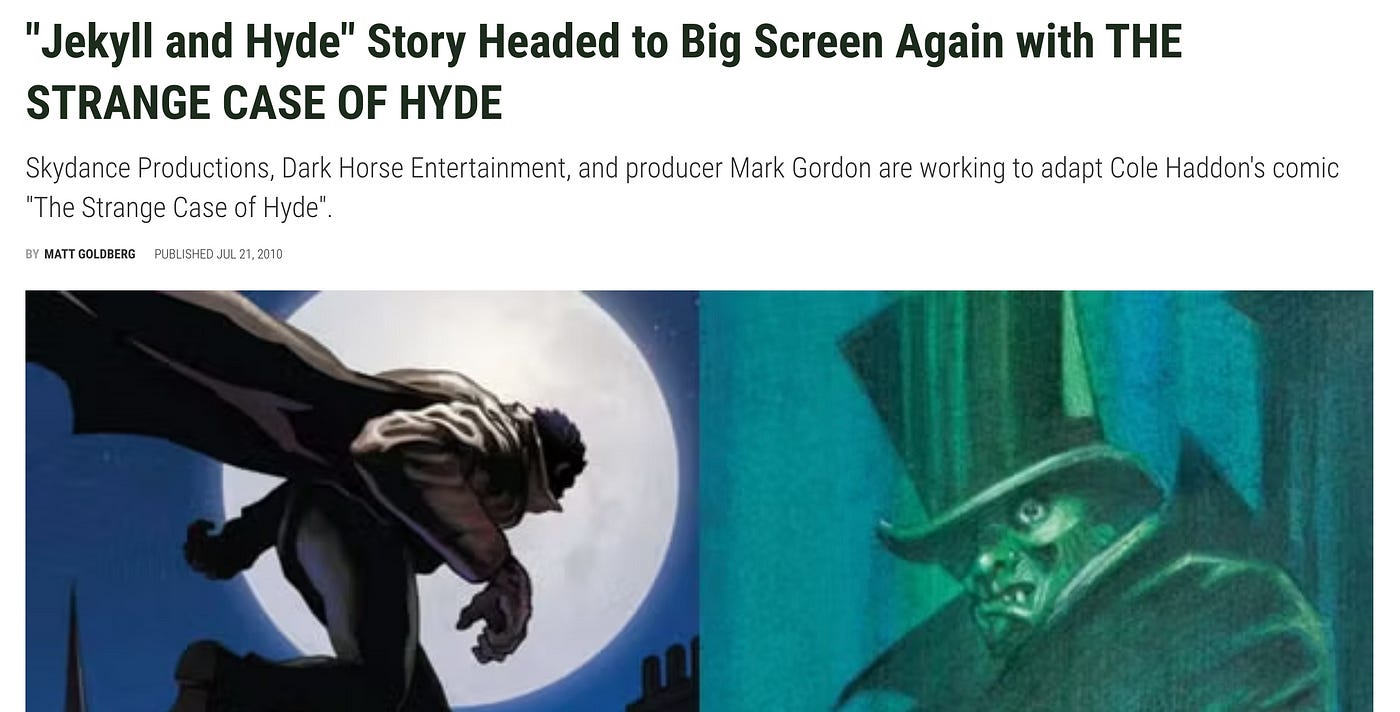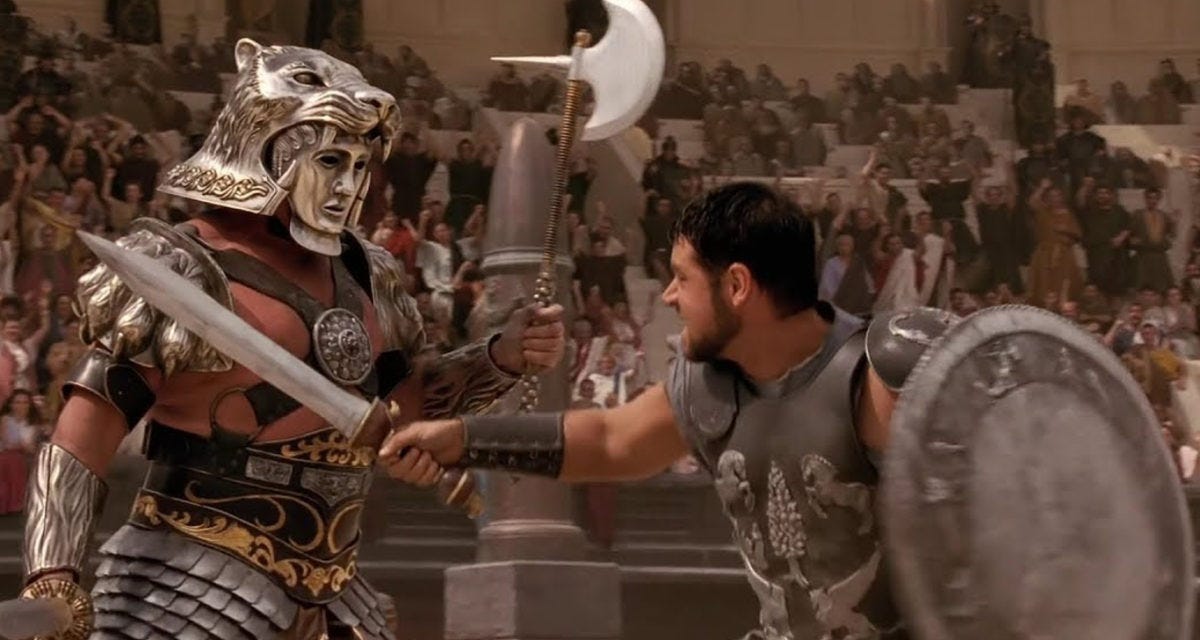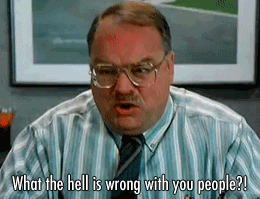Why Pitching Projects Taken from the Public Domain Is Risky
Screenwriters can get excited about dramatizing moments in history and mythology or reimagining our favorite classic novels…but there's a lot that can go wrong when you do
Let me tell you about the time an American mega-producer stole my project. Not behind my back, but to my face. Within the story is a lesson to bear in mind when discussing any ideas you have that are derived from history, intellectual properties that exist in the public domain now, or ancient mythologies.
For context, my screenwriting career launched in the U.S. back in the aughts with a spec script that reimagined one of my favorite books as a child (you can read more about this here). I quickly sold several other such “reboots” of my childhood, creating a niche for myself in a market desperate to find the next period franchise à la Robert Downey Jr.’s SHERLOCK HOLMES (2009).

If you’ve seen my series “DRACULA”, this is how it happened, too…though, as you might have read here, this experience turned into something of a cautionary tale for screenwriters about what can happen when all their dreams come true.

As for the story at the heart of this essay…
It’s more than a decade ago. A couple of projects into life as a professional writer, I have a meeting with an exec at said mega-producer’s company. Generals like these can be dull as a prop sword or, when you’re lucky, exciting like a great first date. This one is the latter. Because I’m digging the vibe in the room so much, I pitch them a project I’m incredibly passionate about — an epic take on one of the most well-known foundational myths in Western civilization. We’ll call it EPIC for our purposes.
The exec I pitch EPIC to loves it. Their boss loves it, too, I’m quickly told. I have been on a bit of a roll lately, so I assume this is going to be another sale.
Yeah…not so fast.
My agents call me. Turns out, the mega-producer loves EPIC so much, they want to find an A-list screenwriter to write it instead of me.
I say no, of course not, don’t be stupid. This is my project, and I’m not just going to hand it over like that.
My agent says I might not have a choice.
Insert a record scratch because: the mega-producer has pointed out my pitch for EPIC is based on mythology that exists in the public domain of human history, which means I have no legal ownership of the project I pitched — so they’re just going to do it without me if I complain.
Now, this isn’t an extraordinary thing to do in Hollywood, but saying it aloud…well…is.
I’m given two choices: either accept a co-producer credit or take a “story by” credit.
Everyone knows co-producer credits mean nothing, and you only get paid if the film gets made anyways. I’m a writer, goddamnit, right? — so I tell my agent I want the “story by” credit and will provide my story doc for these purposes.
The mega-producer isn’t happy about this because it’s going to be very hard for them to find an A-list screenwriter who will want to share credit with some “no name”. This begs the question why they offered to find a screenwriter who would do just that as compensation for stealing my project. They then tell me I’m trying to blow up “their project” by doing this. They actually try to turn themselves into the aggrieved party (gaslighting is a skill possessed by many producers and agents in Hollywood and around the world).
I stand my ground, since I’ve already been screwed by this production company. I’m also early in my career and so still dumb enough to have things like integrity.
Eventually, the mega-producer concedes.
At this point, I sign a contract, basically agreeing to let myself be victimized so I can’t sue them later for stealing my project. The mega-producer then manages to find a screenwriter they think can help them sell EPIC in a, er, epic way. The new creative team, which doesn’t include the screenwriter who conceived the idea, pitch it around town (and while I don’t know what their pitch was, the mega-producer had my take and story doc and very likely used them).
My agents call, and say some version of, “Sorry, bad news. Nobody bought EPIC” — as if I would be broken up about studios not buying my project from the team that stole it from me.
But that’s not the point of this story, is it? (Though, I will admit, I was pleased the mega-producer managed such an, er, epic fail after what they so brazenly did to me.)
The takeaway from this tale of screenwriting woe: your take on a “public domain” event, story, or world might be original, but there’s no real way to protect that idea. Sure, you can try to sue, but do you have the financial wherewithal as a new writer to do that? So, be careful and be smart about whom you share it with.
If this article added anything to your life but you’re not up for a paid subscription, please consider buying me a “coffee” so I can keep as much of this newsletter free as possible for the dreamers who couldn’t afford it otherwise.
PSALMS FOR THE END OF THE WORLD is out now from Headline Books, Hachette Australia, and more. You can order it here wherever you are in the world:








Sorry, Cole, but this made me laugh out loud: 'Let me tell you about the time an American mega-producer stole my project. Not behind my back, but to my face.'
What a business!